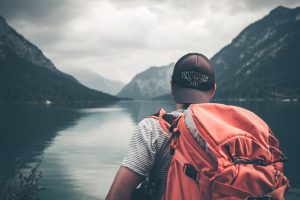Africa is a continent rich in diverse peoples, cultures, and cuisines, as well as breathtaking natural scenery. Clinton Moodley has a discussion with the proprietor of a travel agency, Jennifer Morris, about the information that tourists who are going to travel to another African country need to know.
She will tell you ten things that are important to know before traveling to Africa:
Passport
Your passport needs to have at least six months of validity remaining on it after the date you want to return. If it isn’t, you should make sure to renew it before you leave.
How to keep a travel journal during your epidemic vacations
South Africans can visit a large number of African countries without first obtaining a visa; however, there are a few states that require visitors to have one. When making travel plans, it is important to check with a travel agent about any and all visa requirements, as the process of obtaining a visa for certain countries can take several weeks. Additional visa fees may be required of passengers traveling on passports issued by European countries or the United Kingdom.
Specifications regarding health and safety
When traveling during the pandemic, travelers have a responsibility to pay attention to the vaccination requirements and health advisories of each country they visit. According to Morris, the best thing to do is to consult with a travel professional.
“You may be required to present a certificate of vaccination against yellow fever, or you may be traveling to an area with a high risk of malaria or dengue fever. “The most important thing you can do to ensure that you stay safe throughout the journey is to make adequate preparations,” she advised.
Driving
Do a lot of study on the road conditions, speed restrictions, and boundaries before setting off on a cross-country drive.
According to Morris, “A distance of 200 kilometers might only take two hours on a tarred highway, but it might take a half day’s worth of driving if the road is in poor condition if the speed restrictions are very low.”
Make a note of the locations where you will stop to refuel, and determine whether or not you will require a four-wheel-drive car.
Before you are permitted to rent a car in the country you are visiting, the local authorities may require you to obtain an international driver’s license authorization from the Automobile Association (AA). To ensure that the trip goes off without a hitch, conducting research is essential.
Travel insurance
Comprehensive travel insurance is a requirement. Morris suggested to his clients that they purchase travel insurance that includes coverage for medical evacuations. She stated that this was a requirement that could not be waived under any circumstances while traveling in Africa.
Traditional practices and observances
Morris suggested to travelers that they research the norms and practices of the nation they plan to visit prior to their trip.
“For instance, some countries have a limited tolerance for homosexuality, and others may mandate that women wear more modest clothing when they are out in public. “Don’t make the mistake of assuming that the privileges afforded to South Africans will follow you around wherever you go. She cautioned, “Be cautious of the laws and customs of the country in which you will be traveling.”
Inquire beforehand before you drink the water from the tap.
Inquire as to whether or not it is risk-free to drink the water in a specific nation.
The majority of African nations give this warning to visitors from other countries.
Before consuming any fruit or vegetables that you have purchased from a supermarket or market, make sure you thoroughly wash them. For your own piece of mind, invest in bottled water.
Transport
Do some research on the available modes of transportation at your destination. “Experiencing an African city in the same way that the people do is typically far cheaper than leasing a car or an Uber, and this applies whether you want to go by cab, train, or tuk-tuk.
According to Morris, “It is frequently the finest approach to have an experience that is more genuine.”
Book a local guide
Not only would hiring a local guide contribute to the growth of the economy in the area, but that guide will also let you in on some local secrets. If you are traveling to a location that you have never been before, it is recommended that you engage the services of a local guide for the first few days of your trip. The guidebooks won’t inform you about the sites that your guide will show you and the experiences that they will organize for you, and your guide will know the shortest way to go to the areas that they show you. According to Morris, who provided the explanation, “They’ll also provide you a wonderful insight into the history and culture of your location.”
The forecast for the weather
Check the dates of your trip as well as the months, as the weather in certain countries can be extremely severe at specific periods of the year.




